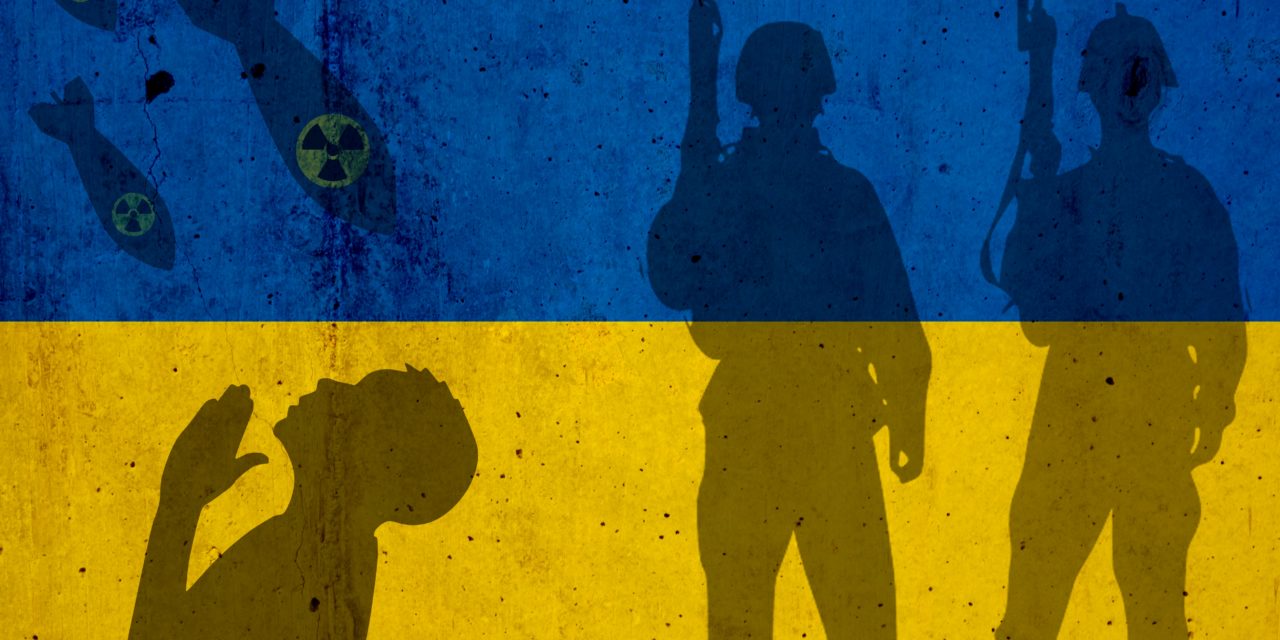Russian state TV hosts Vladimir Solovyov and Margarita Simonyan engaged in a chilling exchange earlier this week, discussing the possibility and even probability (according to them) of the conflict in Ukraine expanding to a broader, global nuclear war.
“Everything will end with a nuclear strike is more probable than the other outcome,” Simonyan mused. “This is to my horror, on one hand, but on the other hand, with the understanding that it is what it is.”
Her counterpart, Solovyov, then added, “But we will go to heaven, while they will simply croak.”
To be clear, both Simonyan and Solovyov are professional propagandists. They routinely lie to the Russian people, and by extension, the world. As a rule, state sponsored journalists in Russia serve at their government’s pleasure. Their reports are calculated and constructed not to share facts but to shape public perception in favor of Russia.
The catastrophic bombings of the Japanese cities of Hiroshima and Nagasaki were the last and only two instances of nuclear warfare. Back then, over 125,000 men and women in the United States worked feverishly to harness the power of the atom, primarily in Tennessee and Washington state. Their work was top secret – though most were unaware how what they were doing applied and contributed to development of the first atomic bombs.
In announcing the bombing of Hiroshima, President Truman called the accomplishment the “Greatest achievement of organized science and history.” But in sober tones, he went on to say, “The force from which the sun draws its power has been loosened against those who brought war to the Far East.”
Students of history may recall that German saboteurs attempted to infiltrate America’s atomic research laboratories during World War II. But American security forces were tipped off. The United States then leveraged the stolen intelligence and was able to discern where Germany was on their atomic research based on the information they were trying to steal from the United States.
Since August of 1945, the threat of mutual annihilation has been enough of a deterrent for every nuclear-capable country. But if a country would prefer to be destroyed rather than surrender, would they still show such restraint?
It’s impossible to know the precise military plans of Russia’s Vladimir Putin. Security experts don’t even agree on his state of mind. The Wall Street Journal’s Peggy Noonan wrote this week of the Russian president:
“In October he will turn 70, and whatever his physical and mental health his life is in its fourth act. I am dubious that he will accept the idea that the signal fact of its end will be his defeat by the West. He can’t, his psychology will not allow it.”
But all that notwithstanding, should we be worried or anxious about the looming threat of nuclear war?
Jesus admonished, “Therefore do not be anxious about tomorrow, for tomorrow will be anxious for itself. Sufficient for the day is its own trouble” (Matthew 6:34). He also once said, “Who of you by worrying can add a single hour to your life?” (Luke 12:25)
One of the many blessings of Christianity is its practicality. Christ’s counsel is also perfect, even when we find it difficult to put into practice. If I’m honest, I will sometimes allow present joys to be clouded by tomorrow’s concerns.
But there is a big distinction between anxiety and burden. Only a shallow and misinformed person is not heavy-hearted with the state of today’s world. When looking around, we may feel helpless – but because of Jesus Christ and His promises, we need not be hopeless.
The mature and proper response to the saber rattling and threat of nuclear conflict is prayer. Pray as a family. Pray as you drive or as you work out. Appeal to the Lord. Take your anxieties to Him. He knows. He cares. He understands.
Remember: men and women may have free will, but as Christians, we know nothing happens in this world without God’s permission.
Photo from Shutterstock.






